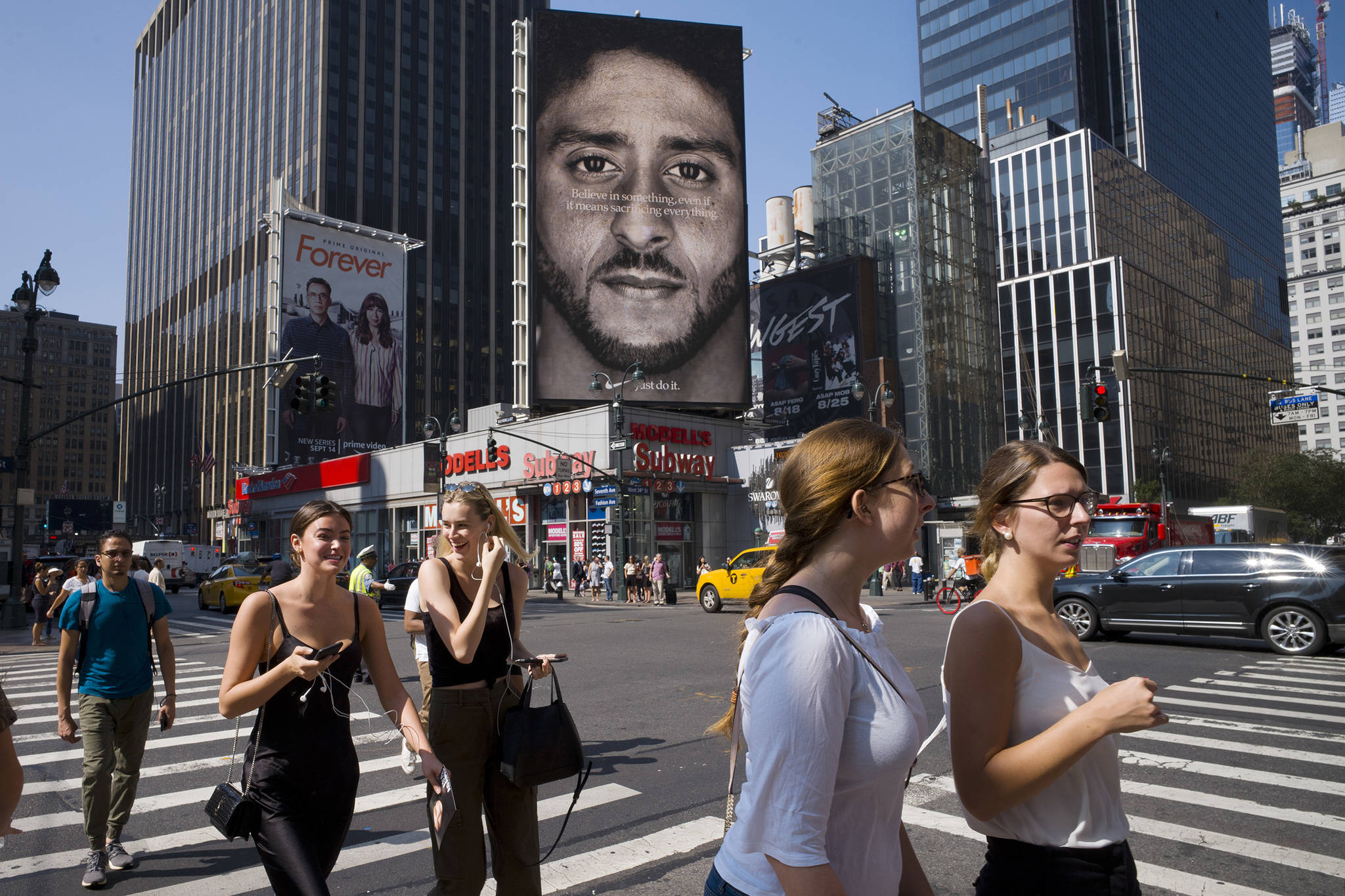“Just do it” Nike has been telling us for 30 years. The trademark theme was part of the controversial ad campaign they released for the NFL’s season opener two weeks ago. Colin Kaepernick never said it though. What his nearly two-minute-long narration did say is success stories don’t begin and end in the decisive moment implied by those three simple words.
It’s easy to reduce the ad to Nike’s pursuit of sales and profits, corral it into the sports arena, or think it’s only a message to people facing insurmountable obstacles. But that’s not what I saw. His challenge to be the “fastest runner” or “greatest athlete ever” was about aspiring everyone to be the best so we can inspire others to believe in their lofty visions.
The ad wasn’t a masked rallying call against racial injustice and unjustified police shootings. The only hint of that demonstration which Kaepernick led two years ago was when he says “Believe in something. Even if it means sacrificing everything.” If that’s controversial, it’s because so many are stuck imagining him as an unpatriotic villain or social justice hero.
Some organizations can’t move on from that either. The National Association of Police Organizations (NAPO) called Kaepernick “a shallow dilettante seeking to gain notoriety by disrespecting the flag for which so many Americans have fought and died.”
Name calling was hardly a dignified response from a collective that claims to be “Representing America’s Finest.” It was no better than burning Nike shoes. Or appearing all dressed up in Nike clothing. No one gets to higher ground by shooting or canonizing the messenger. It’s the message that matters.
What’s there if we separate the narrator’s voice from Kaepernick’s protesting persona? And look beyond the super athletes? It’s young people with dreams. What can we teach them?
Lebron James knows. The point of him being in the ad lies between the scene proclaiming him “the greatest in the history of the sport” and the one of him becoming “bigger than basketball” by opening his “I Promise” school. He’s there because of the work he did to make both dreams a reality.
But his school won’t be a success if his students only learn the value of staying in school. They have to leave believing they can be better today than they were yesterday. And that every tomorrow will arrive with the same demand.
Now step back from the ad and imagine how the Great Bear Recovery Collective here in Juneau is trying to teach that same lesson.
Carrie Mott runs that program. And Jim Musser is a board member. In separate My Turns this month, they describe their years long personal struggles with substance abuse and addiction. They didn’t “just” turn that spigot off one day. They got help to begin and stay on a journey of recovery. And now, using Mott’s descriptive experience, they’re trying to help others leave “the desperate pits of drug and alcohol use” by taking “the difficult road to the relief found through sobriety.”
In another day and age, the fear of being labeled an addict would have kept Mott and Musser from sharing their stories. Instead, they offer proof that all people have the potential to rise above the worst thing they’ve ever done and keep going to be better than the best they’ve become.
That applies to groups, too. Members of the NAPO aren’t the worst act committed by any one of its officers. But like Mott and Musser have done, becoming better starts by acknowledging when they weren’t good enough or where they went wrong. And earning the title “America’s finest” isn’t the end. Like James, there are new heights even the greatest should aspire to reach.
The great collective we call America doesn’t have a perfect past either. Slavery, genocide and unjust wars shouldn’t define us. But only when we admit they’ve stained our founding principle – that all people are created equal – can we hope to build a more perfect union.
That’s what Kaepernick’s protest was about. And it’s what I saw in his Nike ad. America will only be the greatest when everyone who calls this country home reaches every day to become the best we’ve ever been.
• Rich Moniak is a Juneau resident and retired civil engineer with more than 25 years of experience working in the public sector. He contributes a weekly “My Turn” to the Juneau Empire. My Turns and Letters to the Editor represent the view of the author, not the view of the Juneau Empire.

